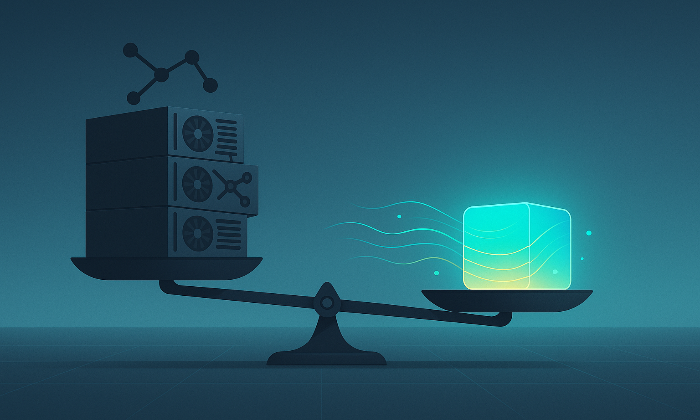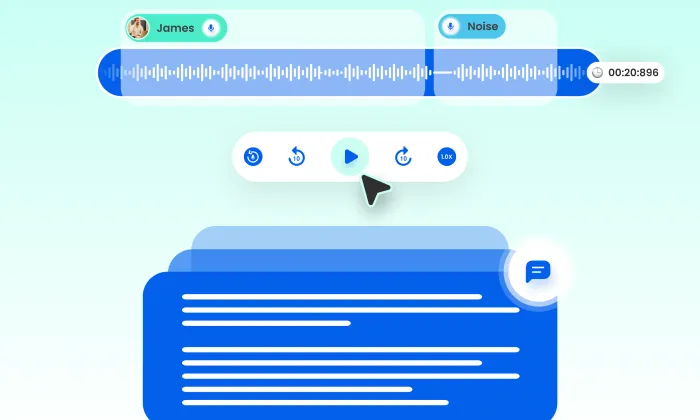How does a doctor–patient speech dataset differ from a doctor dictation dataset?
Speech Dataset
Healthcare
Speech AI
Understanding the differences between doctor-patient speech datasets and doctor dictation datasets is crucial for anyone involved in AI and healthcare. These datasets, while both related to medical interactions, serve different purposes and bring unique characteristics to the AI and natural language processing (NLP) landscape.
Doctor-Patient Speech Dataset
These datasets capture authentic, unscripted conversations between doctors and patients, simulating real-world clinical interactions like consultations and diagnoses. The focus is on mirroring genuine human interaction, complete with emotional cues and natural speech patterns. Licensed physicians guide these conversations to ensure clinical accuracy while maintaining privacy and ethical standards. This approach makes doctor-patient datasets invaluable for training models in automated speech recognition (ASR), conversational AI, and clinical summarization, enabling systems to understand and respond to the nuances of real patient interactions.
Doctor Dictation Dataset
Doctor dictation datasets, on the other hand, consist of structured audio recordings where doctors dictate medical notes or reports. The goal here is to capture precise medical language and structured data to support electronic health records (EHR) and enhance documentation processes. These recordings feature a more formal tone and are designed to be transcribed into accurate written records, focusing on clarity and the correct use of medical terminology.
Why the Distinction Matters
Use Cases
Understanding the intended application is key. Doctor-patient speech datasets are perfect for developing telehealth applications and conversational AI systems, where understanding patient interactions is crucial. Conversely, doctor dictation datasets are tailored for improving voice-to-text functionalities and documentation workflows in clinical settings.
Data Characteristics
Doctor-patient conversations are informal and interactive, introducing variability in speech patterns and emotional tones. This variability is essential for ASR systems meant to handle real-world interactions. Dictation data, however, is more structured and consistent, emphasizing clarity and accuracy in medical language.
Annotation and Processing
The annotation processes differ significantly. Doctor-patient datasets often require detailed annotations capturing intent and sentiment, while dictation datasets focus on transcribing medical terms accurately. Each requires a distinct quality assurance and validation approach, reflecting their unique goals.
Key Considerations in Dataset Selection
When choosing between these datasets, consider the trade-offs between data authenticity and structure. Doctor-patient datasets offer realism and spontaneity, crucial for developing nuanced AI models, but they demand advanced processing to manage speech variability. Doctor dictation datasets, while clearer, may not capture the complexities of human interaction needed for conversational AI.
Addressing Misconceptions About Medical Datasets
A common misconception is that only genuine clinical recordings provide valuable insights. However, simulated doctor-patient interactions can effectively replicate real-world communication patterns, offering a safe and ethical alternative to raw clinical data. On the flip side, teams may overlook the importance of natural conversational data in enhancing AI systems designed for patient interaction.
Real-World Applications
Doctor-patient speech datasets are used in developing virtual health assistants and telemedicine platforms, where understanding conversational dynamics is essential. Similarly, doctor dictation datasets are integral to speech-to-text solutions that streamline clinical documentation and support EHR integration.
By recognizing these distinctions and aligning them with project goals, AI engineers, product managers, and researchers can develop more effective, responsive AI systems in healthcare.
Smart FAQs
Q. What applications benefit from doctor-patient speech datasets?
A. Virtual health assistants, telemedicine platforms, and clinical decision support systems can leverage these datasets to understand and process conversational dynamics effectively.
Q. How do ethical considerations impact dataset collection?
A. Ethical considerations are crucial. Doctor-patient datasets must ensure privacy and consent, while dictation datasets require careful handling of sensitive clinical information, adhering to regulations like HIPAA.
What Else Do People Ask?
Related AI Articles
Browse Matching Datasets
Acquiring high-quality AI datasets has never been easier!!!
Get in touch with our AI data expert now!








